
Bringing together researchers, students and interested audience from within and outside the University, the Modern Greek Seminar is a hub where new work related to Modern Greek literature, culture, history and society is presented for 2-6 Thursdays every term. Due to the University closure, in Trinity term 2020 the Seminar will not take place in its usual format, for the first time in decades. We have, however, taken this opportunity to reflect back on the diversity of research presented in the department in the last years and to showcase parts of it in what will amount to a “virtual seminar”. Every week, we will focus on a group of events or a conference from the last years, circulating available transcripts, photographs, videos or published papers that came out of these events. Look out for weekly updates on this page and daily updates on Facebook.
Week 5
Please visit our Facebook page for updates.
Week 4
Modern Greek Studies at Oxford is strongly committed to working across disciplinary boundaries and regularly collaborates with colleagues from other departments and universities in an effort to create meaningful and thought-provoking dialogues. In 2017, in collaboration with the Oriental Institute at Oxford, we invited postgraduate students from a variety of disciplines for a two-day workshop dedicated to the question of borders and boundaries in the Eastern Mediterranean throughout 20th and 21st centuries. Participants were encouraged to think of borders and boundaries not only in geographical terms, but also as a more general category denoting limits – be it the limits of genre, identity or culture. What continuities and ruptures are invoked in the making of borders and boundaries? How are they delimited, and what are their markers, if any? What cultural processes take place as a result of border crossings? These were some of the questions that our participants approached over the two days of the conference, with full conference playlist, showcasing the diversity of their perspectives, available here and full programme of the conference here. Below we will feature five of the presentations.
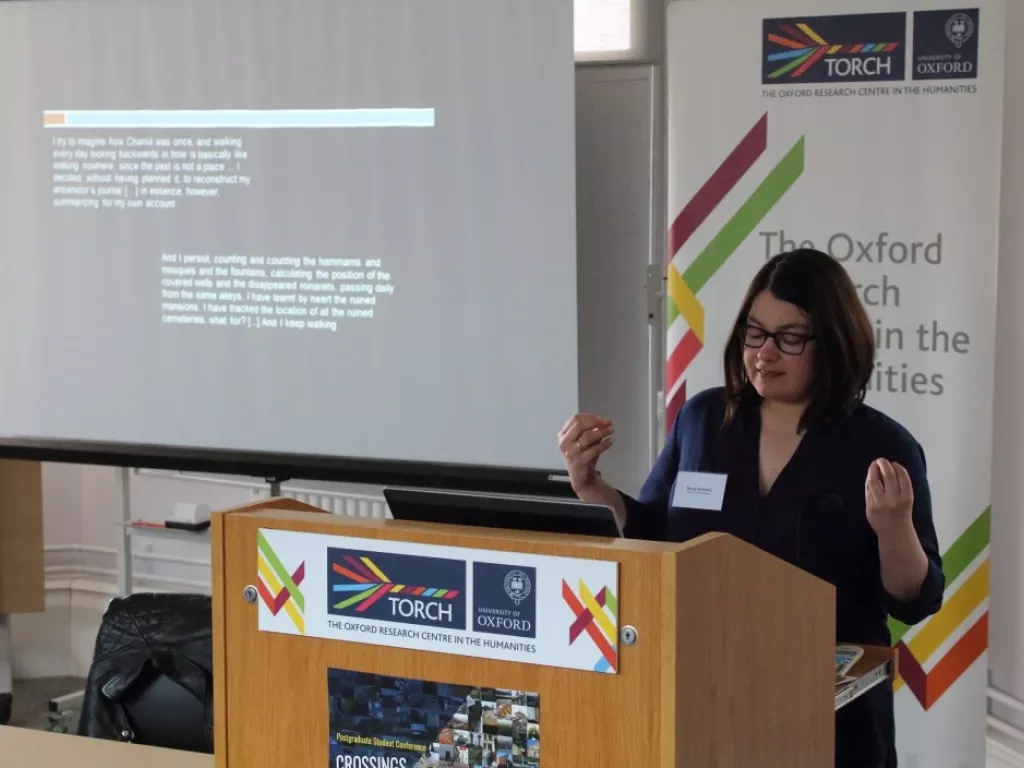
Maria Akritidou on the Eastern Mediterranean as a “shared world”
Maria Akritidou discusses how Maro Douka’s novel The Innocent and the Guilty (2004) reimagines the city of Chania as a site of material Ottoman heritage and replots the historiographical chronotope of the Ottoman port-city as a family novel, inscribing heterogeneity under the code of family ties. Through her presentation, historical poetics of national time and space reconfigure the past for the symbolic economy of the present.

Marios Kiparissis-Moros on Albanian-Greek border-crossing in contemporary Albanian and Greek literature
Marios Kiparissis-Moros focuses on two short novels published after the 1990’s May Your Name Be Blessed (1993) by Sotiris Dimitriou, which was also adapted for the screen a few months after its publication, and A Short Border Handbook (2006) by Gazment Kaplani. He examines how the textual rendition of individual, lived experience(s) portrayed in these novels converges and intersects with each other on a borderline space.

Elena Tornariti on Cypriot as a Minor
Through various cultural examples, Elena Tornariti discusses the difficulty and the possibilities that arise in the state of being/becoming a Cypriot. Her examples challenge the very notion of national identity and bring out the bodily effects of Cyprus’ Green Line, including gender and sexuality. The aim here is not to understand “Cypriot” as a new national identity but to reinstate through this example the notion of the subject as an ongoing open process of becoming through the transgression of the limit, as a will to power (Foucault).
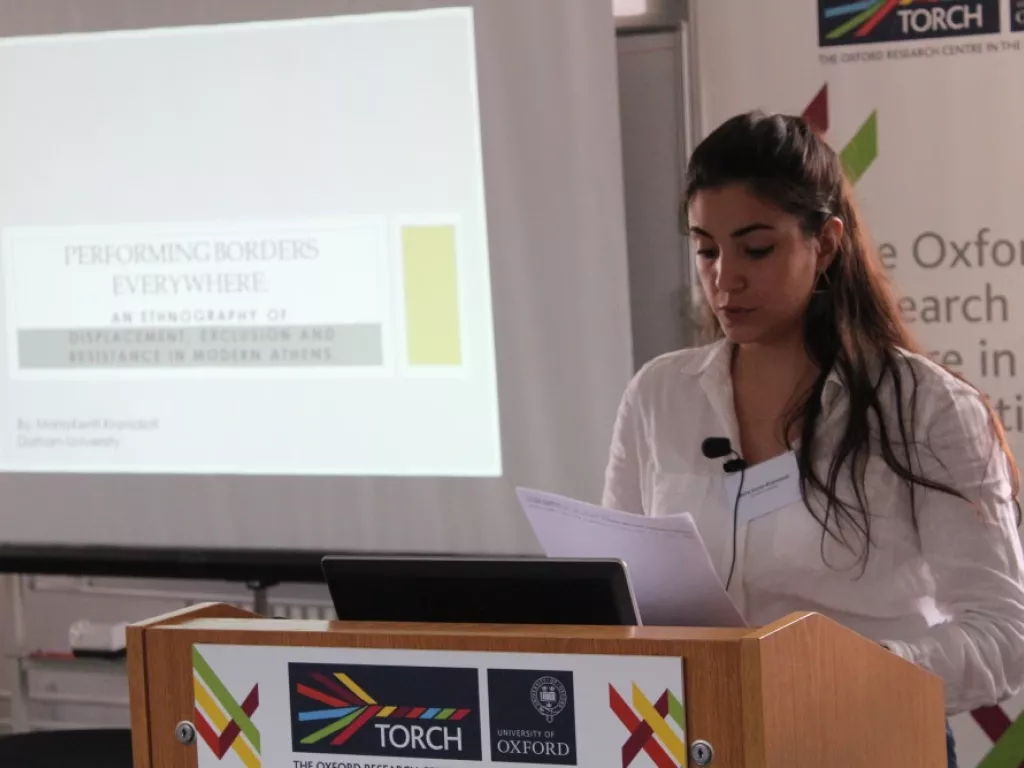
Maria Kenti-Kranidioti on writing an ethnography of displacement, exclusion and resistance in modern Athens
Maria Kenti-Kranidioti examines the performance, construction and deconstruction of geographical, ideological, material and immaterial borders as a result of the European response to forced displacement in 2016, focusing on the micro-politics of border performance and border-crossing in the makeshift camp of Piraeus, the official camp of Scaramangas, and solidarity spaces in Exarheia (Athens).

Clare Azzopardi on the names they left behind
Award-wining writer Clare Azzopardi shares extracts from Maltese literature, including her own short story collection The Names They Left, as a way to reflect on gender, the processes and politics that go into the construction of a literary canon and drawing its borders. The handout of poems read during the lecture, along with their English translations, can be found here.
Week 3
Over the years, Modern Greek Studies at Oxford has provided a platform for debate for both established scholars as well as early career researchers and graduate students. This week we will continue our reflection on the recent ‘Greek crisis’ with podcasts recorded during the graduate conference Renegotiating History in Light of the Greek Crisis. This conference returned to how the crisis informs Greek identity/ies, history and collective memory in a number of novel ways. We will feature six of the talks over the coming week, but all the conference podcasts can be found here.
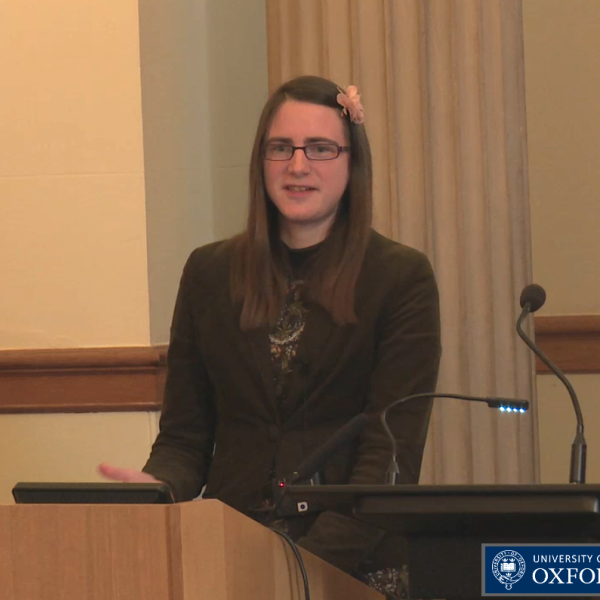
Helen Roche on the impact of historical philhellenism on Germany’s view of the Greek crisis
When the “Greek crisis” is discussed, the urge to reach for historical parallels is never far away. Helen Roche invites us to reflect on uses and abuses of history in the German coverage of the “crisis”, placing them in their philhellenist historical context – whilst also contrasting such attitudes with those found in the British press.
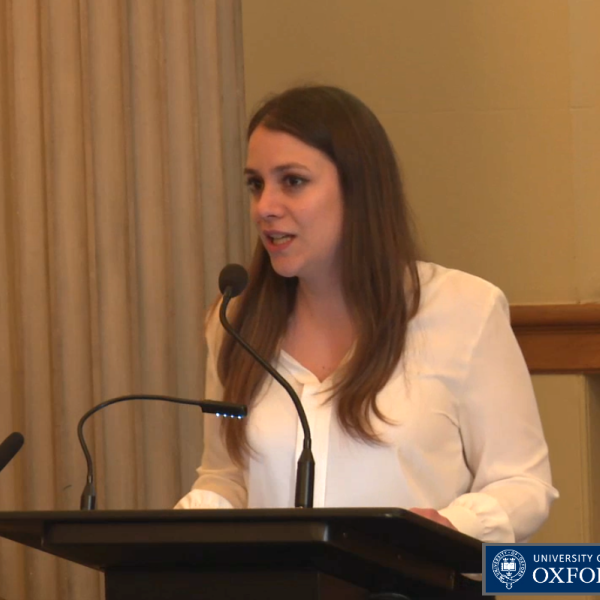
Mina Dragouni on the role of classical heritage during the economic crisis
Mina Dragouni reflects on the phenomenal media coverage and speculation that surrounded the archaeological excavation of Amphipolis Tomb in Northern Greece in 2014, approaching it as an example where heritage is transformed into a public spectacle for mass consumption in order to serve political ends.

Ismini Sioula-Georgoulea on the aesthetics and discourses of far-right blogging on migration
Ismini Sioula Georgoulea focuses on the (re)production of far-right discourses on migration that arose since 2015. Examining a wide range of far-right websites and blogs, she discusses the ideal national identity, the social representations of gendered identities and the role of biological reproduction in the establishment of the nation projected through those websites as well as the discursive and visual strategies used by the far-right to reinforce them.
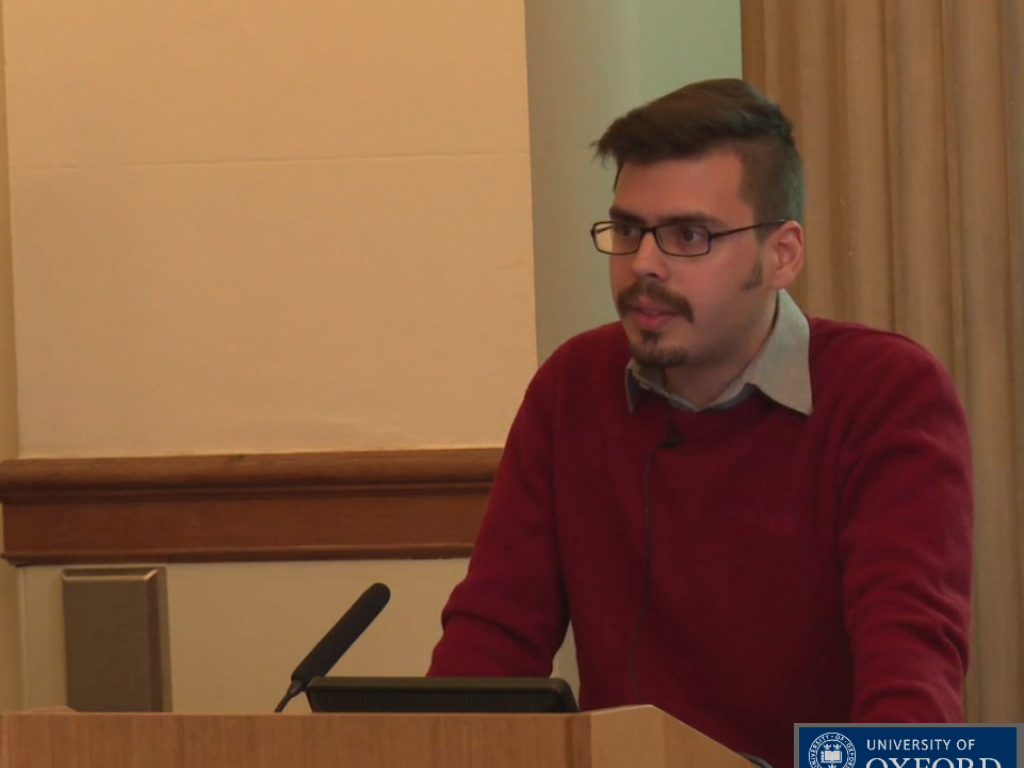
Nikos Kalogiros on re-writing the Beats in the post-December youth underground (sub)cultures
A sensation in the Greek poetry world upon its first publication, Giorgos Prevedourakis’s Kleftiko (2013) was seen as the desperate cry of the Crisis generation and variously read as an adaptation or cultural translation of Alan Ginsberg’s Howl (1952). Nikos Kalogiros offers a comparative analysis of the two poems, examining the ways in which a classic text of the American 1950s, with its distinct rhetoric tropes and its own cultural relevance, can be ‘revisited’, in the context of the Greek crisis.

Maria Mytilinaki Kennedy on crisis and memory on the foreign stage
Maria Mytilinaki Kennedy examines how the bilingual play Abandon the Citizens, created by Aktina Stathaki and performed in New York City in 2013, reframes the history and legacy of 1922 Asia Minor campaign on a foreign stage, in light of the current migration crises. Translation and soundscape emerge in her analysis as two forces that energize historical imagination and help transfer the spectators in time and space.
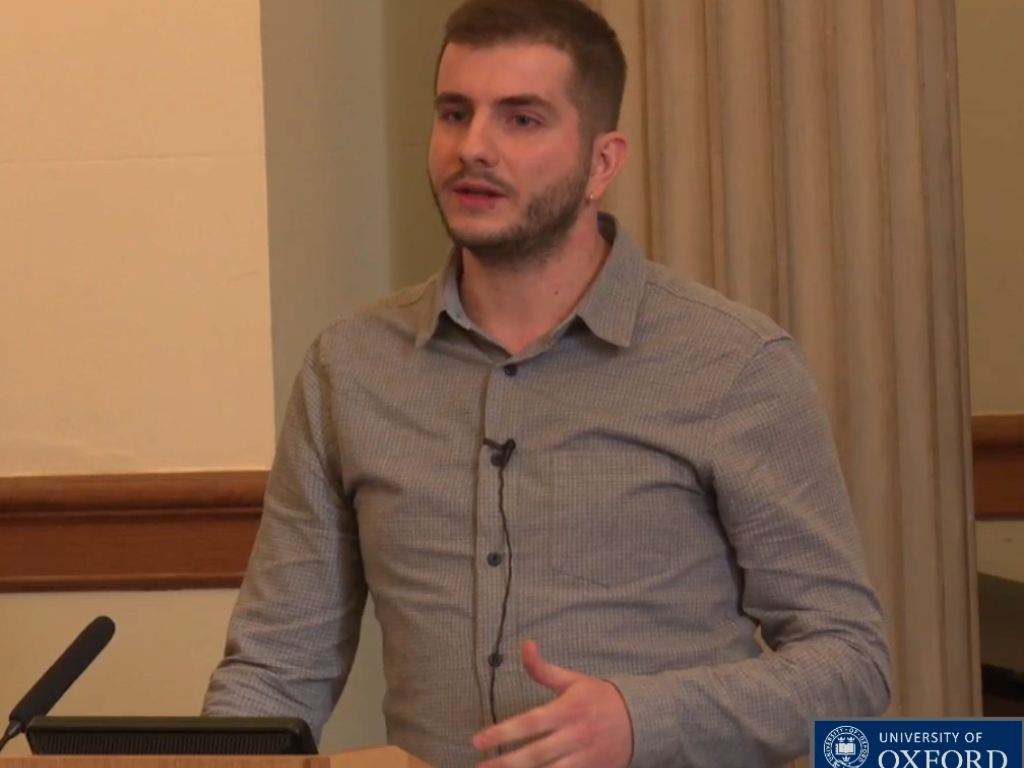
Yannis Vangelokostas on the “Polytechnic Generation” in modern Greek “literature of the crisis”
In this podcast, Yannis Vangelokostas discusses Petros Markaris’ crime novel Bread, Education, Freedom (2012) and Rhea Galanaki’s novel Absolute Humiliation (2015), comparing and contrasting the genealogies of the “Polytechnic generation” that these narratives offer and the intergenerational dialogues they establish in the context of the ‘Greek crisis’.
Week 2
The ongoing ‘Greek Crisis’, its social impact as well as the political debates and the cultural narratives it gave rise to became a research focus in Oxford during the past decade. In the next two weeks we return to two conferences hosted by our department, on the cultural politics of the Greek Crisis (full series of videos can be found here), and on the uses and abuses of history during the Crisis (full set of videos here). We will showcase just ten presentations, of what is a very accomplished set. As a whole, all these presentations talk about a very recent past; eerily, they also seem to be addressing a very near future.
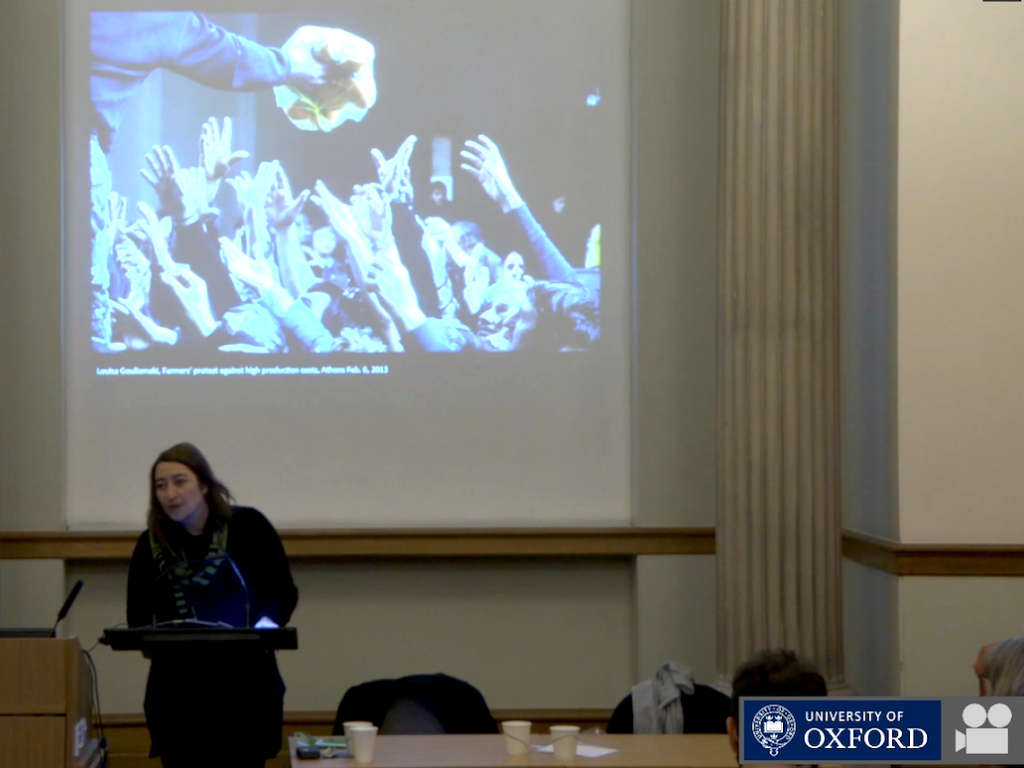
Penelope Petsini’s Crisis photography
We start this two-week reflection with Penelope Petsini’s masterful analysis of Greek photography during the years of the Crisis. One of the most authoritative historians, curators and theorists of Greek photography, Petsini is the editor, among others, of Capitalist Realism: Future Perfect and the Dictionary of Cencsorship in Greece. In this lecture she provides the definitive account of how Greek photographers responded to social upheaval and the politics of austerity.

Thodoris Chiotis on poetry and the trauma of the Crisis
A former graduate of our department and a very well-known poet and critic in Greece and internationally, Thodoris Chiotis has also been the editor of the agenda setting collection Futures: Poetry of the Greek Crisis. Here he reflects on the new generation of poets who made themselves heard during the long decade of austerity.
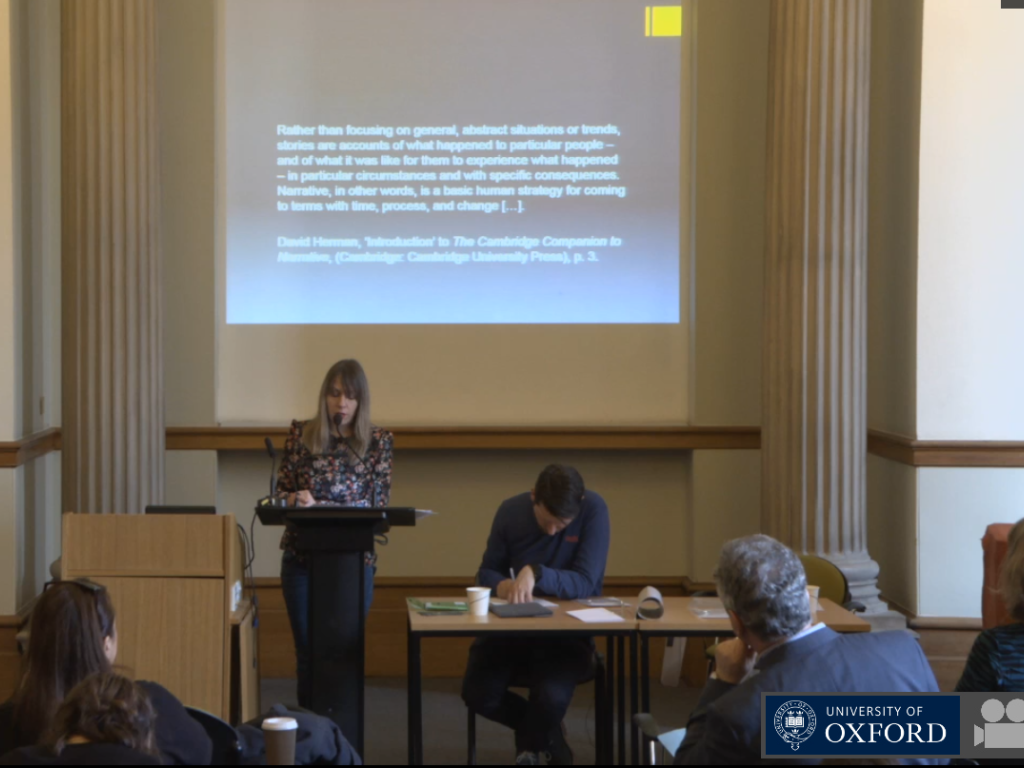
Eleni Papargyriou in search of austerity-prose
One of the most incisive critics of contemporary Greek literature, the Oxford graduate and professor of Greek literature at the University of Patras analyses the turn to short prose form in the first decades of the 21st century. She explains why short stories, but also blogging and web-posting, became the unexpected genres for a new social realism and an impressive lyrical turn.

Why use Cavafy in time of trouble?
There is something about Cavafy that makes readers and critics attracted to his poems during difficult historical periods. Foteini Dimirouli, whose Oxford dissertation-based monograph on Cavafy and English literature is soon to be published with Oxford University Press, explains why.
Week 1
We start our virtual seminar, by looking back at the Modern Greek Seminar itself. We seldom record these Thursday gatherings – and the few recordings that exist have been made individually by members of the audience. It is surprising, however, how much of the Greek seminar survives in various forms. In the first week of term, we showcase six representative examples.


Nina Rapi “Why I Write”: One of the seminars we look forward to every May is the one in which we collaborate with the Oxford University Greek Society Theatre group Praxis. Praxis produces a contemporary Greek play every year, under the inventive direction of Anastassia Revi, offering to Oxford audiences the opportunity to keep in touch with new theatre voices from Greece. This also allows the Greek Seminar audience to meet the playwright and discuss their work.
In 2018, the featured play was Splinters, by Nina Rapi, one of the most recognizable representatives of a new – postmodern, gender bending, formally inventive – theatre that has come out of Greece in recent years.
On the eve of the Oxford performance of Splinters, Nina Rapi addressed the Greek Seminar with a specially written text titled “Why I write”. You can read it here.


Demosthenis Papamarkos in conversation. Over the years, the Modern Greek Seminar has often invited Greek writers to talk about their work. Demosthenis Papamarkos has accepted this invitation twice: once while he was still a research student at Oxford, and still writing his magnificent short story collection Giak. It was eventually published in 2014, becoming one of the biggest critical and commercial successes in recent Greek literature. In May 2018, Papamarkos came back to Oxford to discuss this, as well as his other work which now ranges from graphic novels to the theatre and the cinema. A short video with extracts from this conversation is available here.


Eleftheria Ioannidou’s heterotopic Epidaurus: Eleftheria Ioannidou has been a member of the seminar as a graduate student, returning to present work again as a postdoctoral fellow in Berlin and then a Professor at the Universities of Birmingham and Groningen. It was in this context that she first presented her ideas about the Epidaurus ancient theatre and its function as a “national heterotopia” in Modern Greece. The published version has since become one of the most influential and quoted papers on this debate. Prof. Ioannidou has kindly offered us a short reflection back on this work and the context of its first presentation.
Prof. Ioannidou's article "Toward a National Heterotopia" is freely accessible on the publisher’s website and on Researchgate.


Alexander Kazamias on the visual politics of fear. Alexander Kazamias, Senior Lecturer in Politics at the University of Coventry, has often shared his engaged and highly engaging research on Greek history and politics with the Greek seminar. In November 2017 he gave a talk that kept us discussing for hours (and then again, in the following weeks). He has offered a transcript of this lecture, “The Visual Politics of Fear: Images of Anti-Communist Propaganda in Post-War Greece”, to be reproduced for this virtual seminar. It can be downloaded here.


Liana Giannakopoulou on Engonopoulos’s Bolivar. Literary close reading and contextualisation are among the priorities of the Modern Greek Seminar. We often are, therefore, the first to hear fascinating new readings of major Modern Greek literary texts. One such reading was provided in May 2015 by Liana Giannakopoulou who spoke on Engonopoulos’s Bolivar (publ. 1944). Bringing new, unexpected context, Dr Giannakopoulou explored the poem in the light of the poetics and reception of Pindar's odes, including their sculptural poetics. Her article was then published in the Modern Greek Studies Online and can be found here.